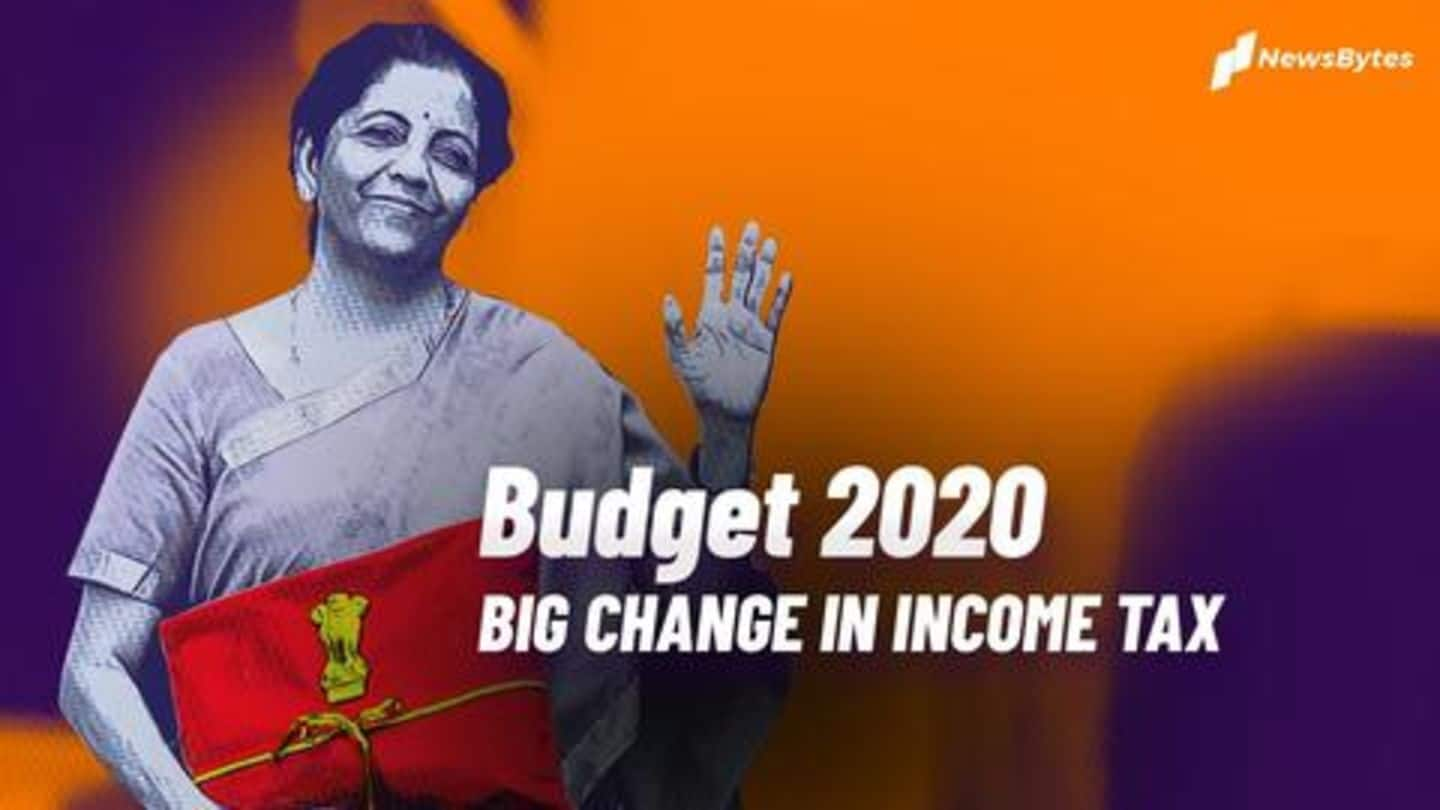
Old vs new tax regime: Which one is better?
What's the story
Finance Minister Nirmala Sitharaman on Friday presented the Union Budget for the fiscal year 2020-21. As anticipated, the Budget unveiled a new income tax regime, with new tax slabs and reduced tax rates. However, this new simplified is also optional; i.e., if you wish to, you can continue following the existing tax regime. So, here's a comparison between both the tax regimes.
Old tax slabs
Here's what the existing tax slabs look like
Under the existing tax regime, there is no income tax up to Rs. 2.5 lakh annual income. For senior citizens (aged 60-80), the tax exemption is applicable to Rs. 3 lakh annual income. For super senior citizens (80+ years old), the limit is Rs. 5 lakh. For Rs. 2.5-5 lakh income: 5% tax rate. For Rs. 5-10 lakh: 20%. Above Rs. 10 lakh: 30%.
Information
However, those earning below Rs. 5 lakh paid no taxes
Notably, individuals earning up to Rs. 5 lakh can avail tax rebate of up to Rs. 12,500, effectively slashing their tax liability to nil. This tax rebate is laid out in section 87A of the Income Tax Act.
Other details
Here are details on surcharge and cess levied
Additionally, those earning between Rs. 50 lakh and 1 crore annually are liable to pay a surcharge of 10%. The surcharge is raised to 15% for those with an annual income of Rs. 1-2 crore, 25% for Rs. 2-5 crore income, and 37% for above Rs. 5 crore income. A health and education cess of 4% is also levied.
New tax slabs
These are the proposed tax slabs, listed in Budget 2020:
For annual income up to Rs. 2.5 lakh, the tax liability is nil. For Rs. 2.5-5 lakh, the tax rate is 5%; for Rs. 5-7.5 lakh, it's 10%; for Rs. 7.5-10 lakh, it's 15%; for Rs. 10-12.5 lakh, it's 20%; for Rs. 12.5-15 lakh, it's 25%; and for an annual income above Rs. 15 lakh, the tax rate is 30%.
Information
Existing tax rebate, surcharge, cess still applicable
However, due to the aforementioned tax rebate, those earning up to Rs. 5 lakh have zero tax liabilities. Basically, you don't have to pay any taxes if your annual income is less than Rs. 5 lakh. Surcharge and cess will be levied at existing rates.
Optional tax regimes
You can pick between existing and proposed tax regimes
Since the new tax regime is optional, you can still choose to pay tax under the existing regime. Earlier today, Sitharaman illustrated that those earning Rs. 15 lakh would have their tax outgo lowered by Rs. 78,000 under the new tax regime. The only catch here is that if you opt for the new tax regime, you will have to forego exemptions and deductions.
Exemptions, deductions
Which tax regime is better?
For e.g., a taxpayer can claim a deduction of Rs 1.5 lakh under section 80C of the IT Act for certain investments and payments. Under the new tax regime, similar deductions and exemptions cannot be availed by taxpayers. So, answering which tax regime benefits you more, the existing or the new, really depends on the exemptions and deductions you are eligible for.